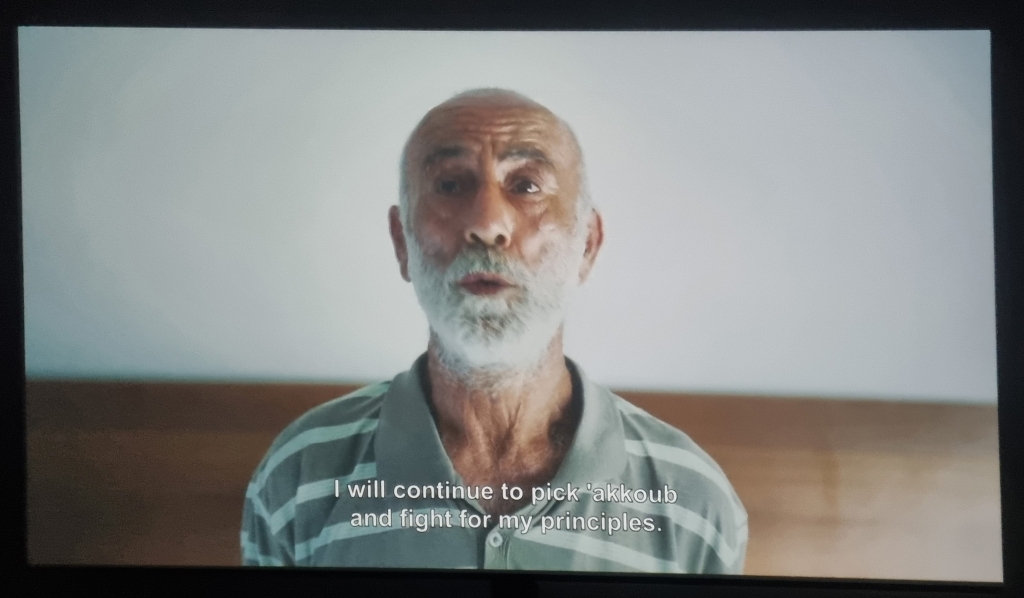Thanks so much for everyone who came and shared their energy, time, knowledge and experiences so generously at the second iteration of the Commons Feast, on 15 November. Despite it being late autumn, we heard stories of people identifying, picking and eating flowers, leaves, berries, roots and fungi whilst partaking of various foods and drinks such as elderflower cordial, and elderflower and blackberry compote, dried nettle leaf tea, tilleul or Linden tisane, pine needle tea, and acorn bread with gorse flowers topped with common sorrel pesto and gorse flower infusion.

In the first iteration, I framed the session around our motivations for why we forage and why we wanted to come together in an event such as the Commons Feast. For this session, I offered the following as a provocation which framed our discussions:
In ‘Seeds of Change’ an essay in October’s issue of Artforum, writers Natalia Brizuela and Julia Bryan-Wilson discuss the work of Palestinian Berlin-based artist, Jumana Manna, starting with her 2022 film, Foragers which was on show at Hollybush Gardens gallery in London. The film examines how practices of foraging ‘intersect with colonial power structures’ (Hollybush Gardens, 2022). It explores the sensory interactions with edible plants, especially za’atar and akkoub, as well as the criminalisation of foragers. It follows those who collect herbs vital to Palestinian food heritage, those who work for the Israel Nature and Parks Authority, as well as inside the Israeli legal system, to witness wild food gatherers being chased and caught, interrogated and fined, criminalised for practices which are ‘embodied entanglements with the environment’ and acts of stewardship ‘across generations’ (Brizuela and Bryan-Wilson, 2022: 147).




As an introduction, Brizuela and Bryan-Wilson trace the etymology of the word ‘forager’ which they write as having almost oppositionally different meanings. ‘It appears in fifteenth century English to describe someone who roves in search of sustenance’ yet ‘a century earlier the Old French foragier referred to a plunderer’ (p. 147).
Photos from Jumana Manna Foragers 2022 film projection, Hollybush Gardens.
Although in the UK and Europe, we are not dealing with the level of recent colonialism of that depicted in Manna’s film, our natural resources, however, can often appear scarce or endangered, being increasingly polluted, infringed and built upon, having been enclosed, colonised and privatised through acts of enclosure during the 17th and 18th centuries as well as in more recent and contemporary times.
Wherever we forage, we must traverse sensitively, making sure whilst in our search for sustenance we do not plunder so as to enable our future selves, our descendants and our non-human relatives can continue to engage in what Brizuela and Bryan-Wilson call ‘embodied entanglement’ (p.147) with our landscapes in dialogue with ecology and ancestry through these wild foodways which teach us so many things. They write, ‘foraging is repair, continuity, survival, existence’ (p. 148).

Photos from Jumana Manna Foragers 2022 film projection, Hollbybush Gardens
The idea of foraging as repair, care and survival seemed to resonate deeply with people at this Commons Feast meet up. We heard of stories of foraging – and the walks that are inevitably part of this gathering – as practices of healing, repairing, slowing down and as therapy against a variety of physical and mental conditions. Once again, slowing down and paying attention to one’s immediate environment came up, and noticing and foraging gave purpose and encouragement to go, – and stay outside, when health conditions made it more challenging. We heard about foraging in rural and coastal areas, and in urban parks with a knowledge exchanging with visitors to the UK to find similar wild plants in common such as fat hen and Aztec broccoli. One participant talked of taste testing raw haws (as suggested by Robin Harford) which, it turns out, are not all created equal in flavour. The challenge of identification if you don’t have a working sense of smell was also discussed, with suggestions to gather with friends to share knowledge as well as sensory input!
As for gathering in December, John Wright has these suggestions in :


References:
Hollybush Gardens (2022) JUMANA MANNA: FORAGERS, Press release, https://hollybushgardens.co.uk/files/press-release-jumana-manna-foragers-hollybush-gardens-2022.pdf (Accessed 15/11/2022).
Natalia Brizuela and Julia Bryan-Wilson (2022) ‘Seeds of Change’, Artforum, Artforum, Vol. 62, No. 2, October 2022, pp. 146-153.
John Wright (2019) The Forager’s Calendar: A Seasonal Guide to Nature’s Wild Harvests London: Profile Books.


